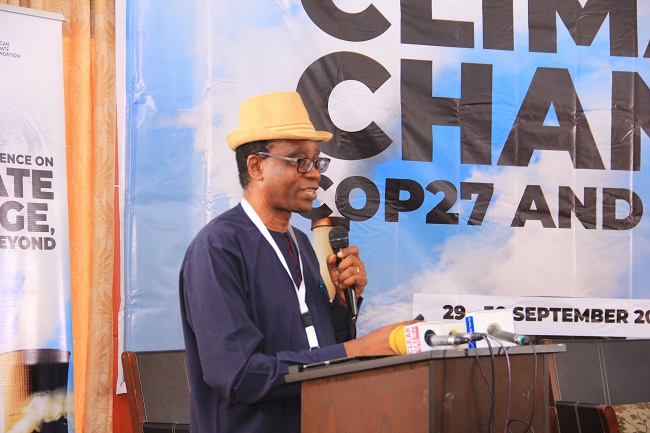The 27th Session of the Conference of the Parties (COP27) to the United Nations Framework Convention on Climate Change (UNFCCC) ended without any other significant shining light besides the Loss and Damage proposal.

Hopes that the COP would call for a phase out of all fossil fuels were dashed. The campaign for climate debt has been campaigned for by civil societies for years. This demand is in line with historical and current harms being suffered by vulnerable nations and regions due to climate change triggered by actions by industrialised nations.
Rather than recognise and pay the climate debt, the COP had proposed a Green Climate Fund at COP15 and acceded to payments for Loss and Damage at COP27. Hopes for the recovery of damaged environment were shattered by the usual lack of seriousness in the discussions. COP27 did not rise to even the weak attempts to call it an African COP.
The outcome confirmed that this was just another COP with nothing substantial in terms of reparations for centuries of harms and ongoing ones. The COP could not be termed African COP because of its mere geographical location, as Africans could not attend due to diverse restrictions while the corridors of the COP were filled with fossil fuels promoters who attended to block decisions that would rescue the world from the clutches of the industry.
Observers saw the COP as mainly providing space for civil societies to meet, prepare and share ideas on the way forward. Although the COP ought to find ways to stop climate change, it has become a carbon trade fair where false solutions including carbon trading and carbon capture and storage are being promoted.
Director, Health of Mother Earth Foundation (HOMEF) Nnimmo Bassey, stated: “COP27 leaves vulnerable nations to contend with climate impacts without any serious help that can be counted as additionalities. Delaying action on Loss and Damage simply means tossing nations into more famine, fires, and floods.
“Climate change continues to be driven by development based on exploitation of peoples and the destruction of Nature made in the guise of fighting global warming. If we must have a livable future, the COP must be bold to act, especially with regard to phasing out fossil fuels. This is not even being discussed! Rather than opening doors to false solutions. The COP has transformed itself into a
platform for avoidance of climate action. We have come to an inescapable moment when avoidance of real climate action can no longer be accepted. Pay the Climate debt and leave the fossils in the ground.”
HOMEF urges that the loss and damage agenda should not be considered as charity but as reparations for centuries of ecocide and damaging activities. Nigerian negotiators should see COP28 holding in the United Arab Emirates as a moment to press industrialised nations and polluting entities to accept liability for the climate catastrophe and to make adequate annual payments for it. This should be addressed as a climate debt and in clear terms.
HOMEF believes that fossil fuels are responsible for wars, climate harms and human rights abuses and that the funds invested in warfare should be channeled to funding the needed just energy transition and for tackling the manifestations of climate change.
HOMEF is concerned that precious time is being wasted on non-solutions such as the promotion of unproven and risky technologies including geoengineering.
HOMEF urges Nigeria and other African nations to realise that the 1.5 degrees temperature target set in the Paris Agreement is on track to be exceeded judging from the Emissions Gap Report issued by UNEP. To close that gap, the world will ultimately exit the petroleum era. This is the time to get off the fossil train rather than risk stranded fossil fuel assets by the coming decade. Africa cannot afford to be a stranded continent loaded with stranded fossil assets.
A 1.5 degrees Celsius temperature increase above pre-industrial levels will be disastrous for Africa as the continent has temperatures above global averages. This reality makes taking climate action more urgent for us than for most others.
